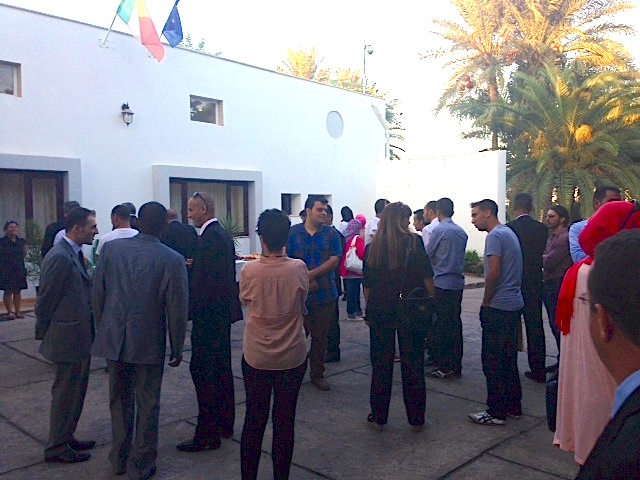By Ashraf Abdul Wahab.
Tripoli, 26 September 2013:
A number of illegally-detained prisoners, including several women, have been found in a detention facility . . .[restrict]on the outskirts of Tripoli after it was stormed by security forces.
The jail in Tajoura, known as the Crime Combat Prison, was stormed by Battalion 101, which operates under the Ministry of Defence. Some of the prisoners reportedly had marks on their bodies suggesting that they had been tortured, including evidence of electrical burns.
Those being held in the facility included several people who had reportedly been arrested over personal disputes and had never been brought before a court. Some of the families of the detainees had not even been informed that they were being held.
The battalion took action after local people repeatedly voiced concerns that the prison was being used to detain people who had been kidnapped.
The raid in Tajoura comes in the wake of the latest report to be presented by UN Secretary-General Ban Ki-moon to the Security Council on the operations of UNSMIL under its chief Tarek Mitri .
The Secretary-General said that he remained deeply concerned at the inadequately slow progress with which detainees were being transferred from the hands of militias to the state.
“ A few thousand detainees remain only nominally under the authority of relevant ministries, and thousands of others continue to be held by armed brigades not affiliated with the state in any form”. Ban added “The continuing ill-treatment and torture in non-State-run detention facilities is unacceptable. ”
Indeed, this largely downbeat document noted that in the last six months, there has been no change in the number of conflict-related detentions, which still stand at around 8,000, held in prisons nominally under the authority of the Ministries of Justice or Defence. There had been no progress on screening these individuals, in part because of the limited powers of prosecutors, but also because of a fear of reprisals.
“The safety of judicial personnel remained a serious concern,” said Ban, “with several attacks on prosecutors and judges recorded, including the assassination of a high-level judge outside the courthouse in Derna on 16 June and bomb attacks on courthouses in Sirte and Benghazi on 24 and 28 July, respectively.”
The UN is also seriously concerned about the treatment of detainees, with evidence of continuing torture and other forms of ill-treatment, especially in a number of detention facilities.
While noting that the GNC has passed legislation criminalising torture, illegal detention and discrimination, which ought to deter grave abuses of human rights, on the basis that perpetrators know that they can no longer act with impunity, Ban said that some detention conditions, especially those holding illegal immigrants under the authority of the Interior Ministry, remain largely unacceptable. He added: “Since January 2013, UNSMIL has gathered evidence, including medical reports, suggesting that at least 10 deaths in custody were due to torture. No one has been held to account to date.”
Nevertheless, Ban observed:“the Ministry of Justice has made significant efforts to improve conditions at several facilities, including in Zliten, where UNSMIL observed improvements, particularly in the medical care of detainees”.
[/restrict]








